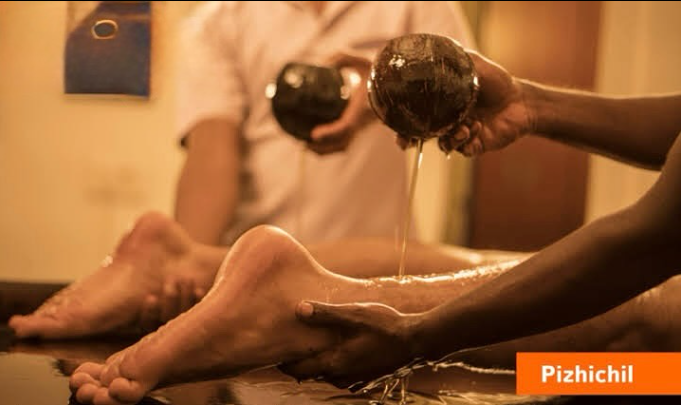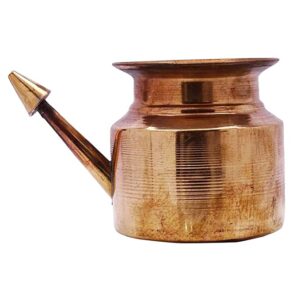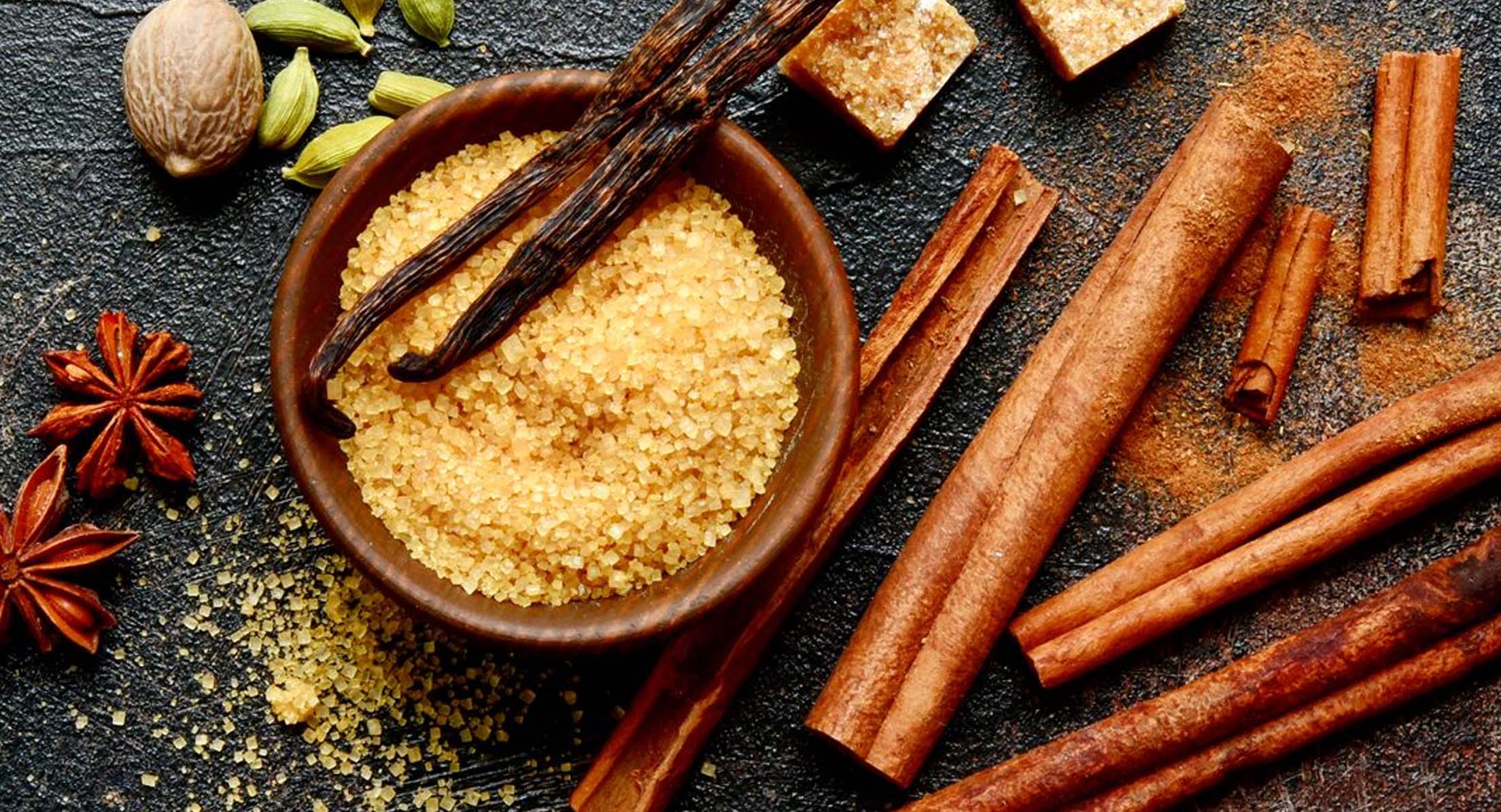🌿 Discover Herbal Oil Bath (Pizhichil): Ancient Ayurvedic Healing in New Plymouth 🌿
At AyuNature Wellness (ANW), we are proud to offer one of Ayurveda’s most luxurious and restorative treatments — the Herbal Oil Bath (Pizhichil), an ancient herbal oil therapy that deeply nourishes the body, calms the mind, and restores balance to the whole being.
Conveniently located in the heart of New Plymouth, our clinic provides a peaceful, professional, and personalised space for you to experience this authentic Ayurvedic healing.
What is Ayurvedic Herbal Oil Bath/Pizhichil?
Pizhichil (pronounced pee-zhih-chil or pee-ree-chil), meaning gentle squeezing, is a classical Ayurvedic treatment where warm, medicated herbal oils are gently poured over the body in a continuous, soothing, rhythmic flow. While this happens, a gentle, synchronised massage is performed to help you deeply relax and restore.
Traditionally known as the “treatment of kings”, this therapy combines the benefits of Swedana (heat therapy- to open channels and release toxins) and Snehana (oleation- to nourish tissues and joints deeply) to promote total relaxation and healing.
At AyuNature Wellness, we honour the traditional method while customising each session to suit your unique body constitution (dosha).
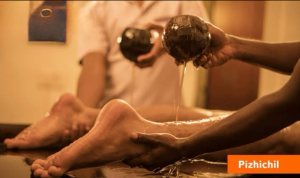
Benefits of Ayurvedic Oil Therapy/Pizhichil
This therapy is ideal if you are seeking to restore balance, vitality, or relief from ongoing discomfort. Benefits include:
🟢 Relief from Joint and Muscle Pain
Helps with arthritis, back pain, fibromyalgia, and general stiffness.
🟢 Stress Reduction and Nervous System Support
The warmth and rhythmic flow of oil calms the mind, easing anxiety and emotional tension
🟢 Improved Circulation and Detoxification
Helps flush out toxins, boost energy and revitalise the body.
🟢 Skin Rejuvenation
Deeply hydrates and nourishes the skin, supporting conditions such as eczema or dryness.
Backed by Modern Research
While Ayurveda is thousands of years old, modern science is also confirming its benefits.
Read this recent 2025 study published in the International Ayurvedic Medical Journal on 👉 Pizhichil, its mechanisms and benefits
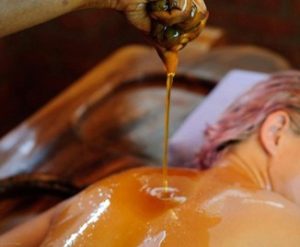
Why Choose AyuNature Wellness?
-
Expert Care: Treatments are led by Dr Aseem Gautam, Ayurvedic doctor and registered natural health practitioner with over 15 years of experience. He was trained in India and brings genuine Ayurvedic expertise to New Zealand, blending ancient knowledge with modern wellness needs.
-
Authenticity: We use only high-quality, herbal oils, prepared as per classical Ayurvedic texts,
-
Personalisation: At AyuNature Wellness, you’re not just receiving a treatment — you’re experiencing care that is individualised, holistic, and rooted in tradition. Each session begins with understanding your health goals and body constitution.
-
Holistic Environment: A calming space, close to nature, designed for relaxation and healing.
What to Expect
-
A full-body therapy with warm herbal oils applied in a gentle, continuous stream.
-
Relaxation in a calm, nurturing space.
-
Post-treatment rest with warm herbal tea and tailored wellness advice.
👉 Session length: 30–60 minutes
👉 First-time visitors: Includes a brief health assessment for a customised experience.
Book Your Ayurvedic Herbal Oil Bath Today
Whether you’re looking for relief from a health condition or simply want to relax & recharge, Pizhichil is a deeply transformative experience.
📍 Visit Us: 207 Frankley Road, New Plymouth
🌐 Book Online: www.anw.co.nz
📞 Call: 0224145841
📩 Email: info@anw.co.nz
📲 Follow Us ![]() AyuNature Wellness
AyuNature Wellness ![]() ayunature_wellness
ayunature_wellness
Let the warmth of ancient Ayurvedic healing soothe your body and mind. Discover Pizhichil at AyuNature Wellness – where tradition meets modern natural care in the heart of Taranaki.
